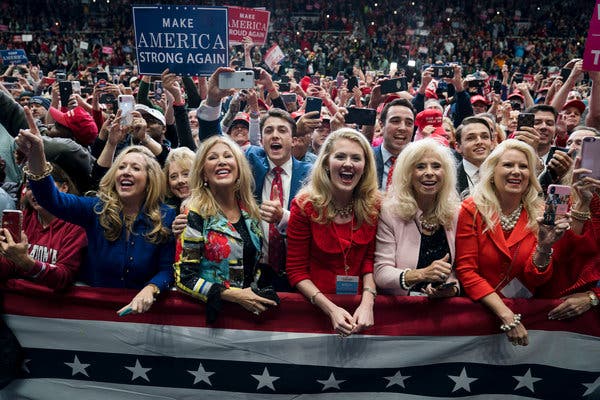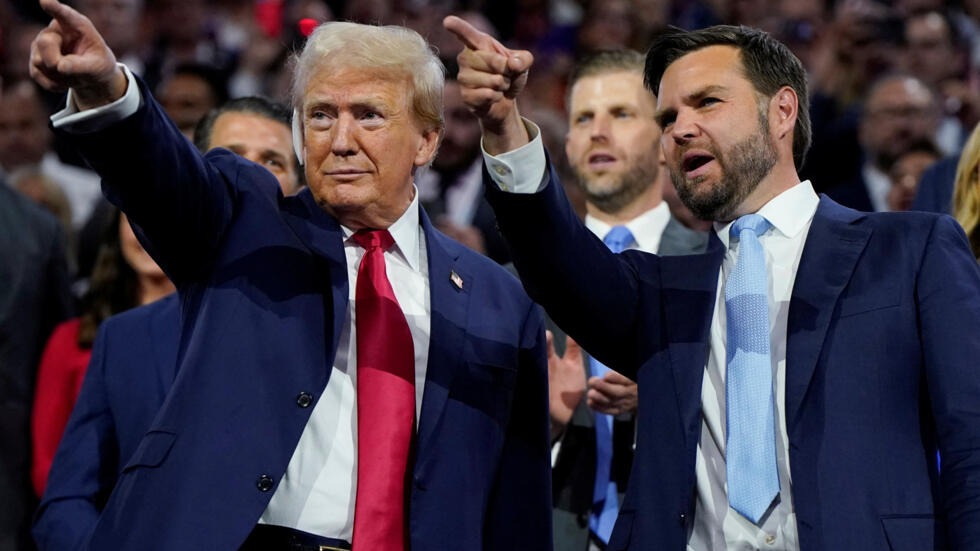
In the lead-up to the 2024 election, a growing number of Republican women are making it clear: they are standing by Donald J. Trump, undeterred by the resurfacing of past accusations, indictments, or media-driven moral discourse. For these voters, concerns over character are eclipsed by what they see as a far greater threat — the erosion of America’s cultural coherence and demographic stability.
Despite a well-documented history that includes accusations of sexual misconduct — including a New York jury’s finding of liability for sexual abuse and defamation against E. Jean Carroll — Republican women are not just continuing to support Trump, they are doing so with renewed vigor. For many, these allegations are viewed less as disqualifying moral failures and more as calculated distractions weaponized by a desperate political class.
“It’s always something with Trump,” said one voter during a Fox News town hall in Iowa. “They tried Russia, Ukraine, taxes, now they’re digging up old claims. It’s noise. He’s fighting for us.”
The “us” in question, for many women across conservative America, is not simply a voting bloc but a way of life. It’s a cultural identity that feels increasingly under siege — not just from what they perceive as government overreach, but from demographic shifts and what they view as forced multiculturalism.
One of the clearest through-lines among Trump’s female base is their perception that America’s traditional racial and cultural identity is being replaced. Far from shying away from this notion, many embrace it as a core concern.
In private Facebook groups, conservative podcasts, and evangelical women’s circles, discussions center not on Trump’s personal life but on what some refer to as “cultural survival.” References to “the American way of life” often serve as shorthand for a nostalgia-tinted vision of a nation dominated by European Christian norms. The concern is not framed as racism, but as realism.
“Democrats think we should feel guilty about wanting our communities to stay American,” said conservative commentator Candace Owens, who has frequently defended Trump against criticism. “But women — especially Republican women — know what happens when you lose control of your borders and your values.”
This sentiment is echoed in polling. A 2024 Pew Research study found that 64% of white Republican women say “preserving the traditional American way of life” is more important than promoting racial or ethnic diversity. For many of these voters, Trump’s unapologetic rhetoric about immigrants, Black Lives Matter protests, and “woke” ideology is not offensive, but refreshing.
In an April rally in Michigan, Trump declared that if reelected, he would “carry out the largest domestic deportation operation in American history.” The crowd, filled with women holding “Moms for Trump” signs, erupted in applause. To them, this was not extremism — it was common-sense border policy.
While critics label Trump’s language as authoritarian or xenophobic, his supporters — especially women who see themselves as protectors of family and culture — consider it bold and necessary. They point to rising crime, education debates, and changing cultural norms as proof that America is drifting, and only a leader with Trump’s clarity of purpose can course-correct.
Even religious concerns have proven flexible. White evangelical women, long considered a moral compass within the GOP, have largely compartmentalized Trump’s behavior. In the words of Ralph Reed, founder of the Faith & Freedom Coalition: “We're not electing a pastor-in-chief. We're electing a commander-in-chief.”
This perspective allows supporters to view Trump's legal issues — including felony convictions and civil court losses — not as reflections of personal failings, but as badges of persecution. As one woman told CNN after a Trump rally in Nevada: “They’re not going after him. They’re going after us.”
To these voters, Trump’s moral ambiguity is not a bug — it’s a feature. He is the embodiment of righteous defiance: imperfect, embattled, and unwavering. And to many Republican women, especially those concerned with immigration, demographic change, and the preservation of conservative Christian norms, no other candidate speaks to them with such clarity.
Whether or not these women’s concerns are grounded in evidence is rarely the point in media coverage — but within their circles, the logic is consistent, even if unspoken: better a flawed champion than a gentle loser.




